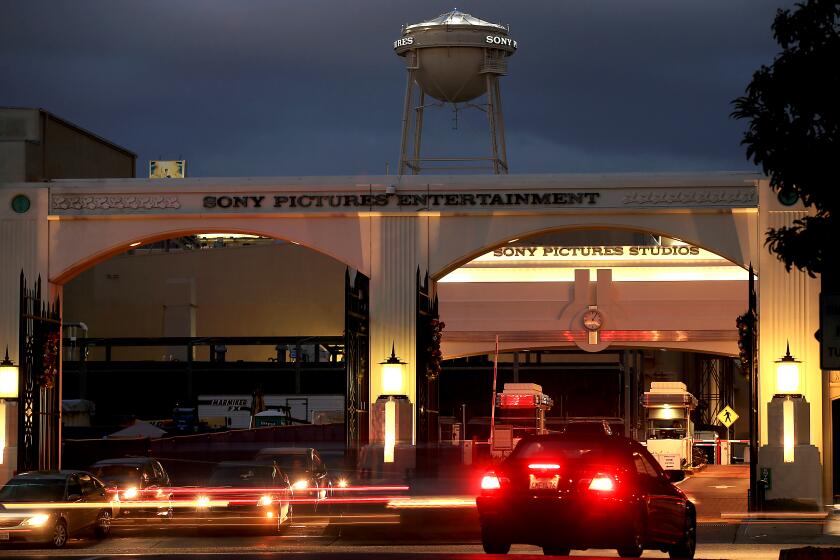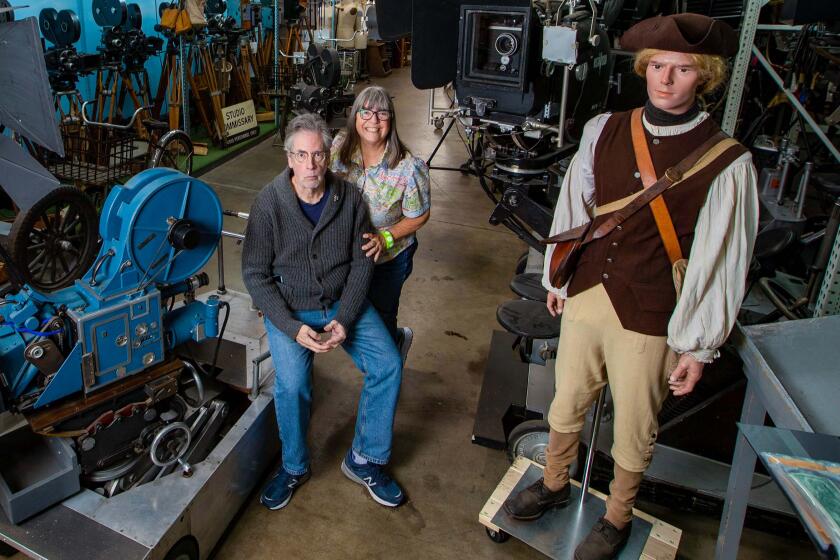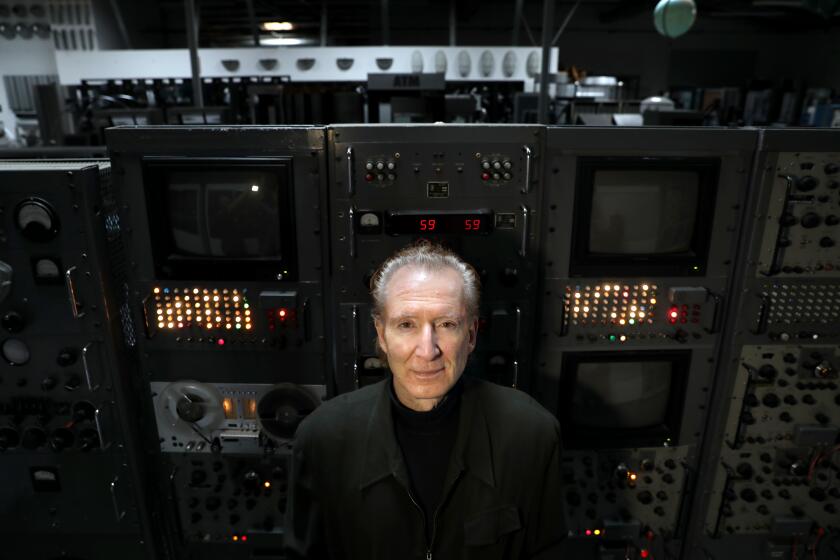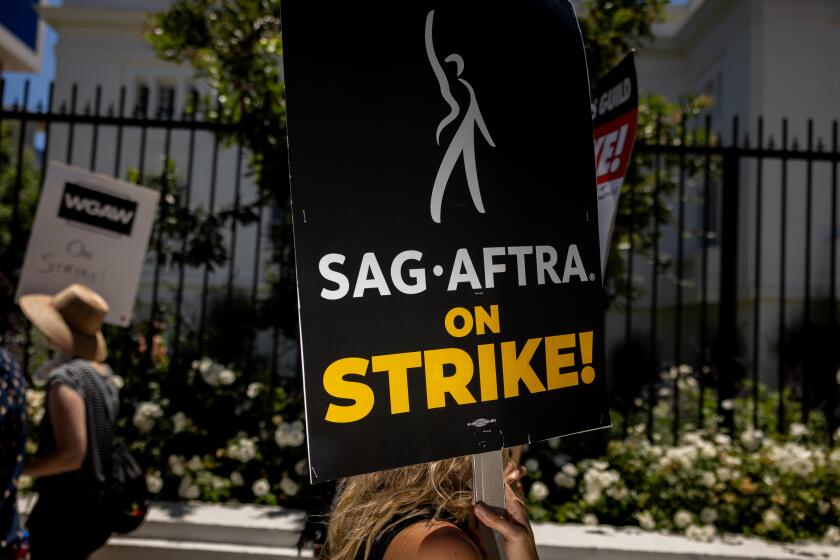L.A. prop houses prepare for the return of production after dual Hollywood strikes
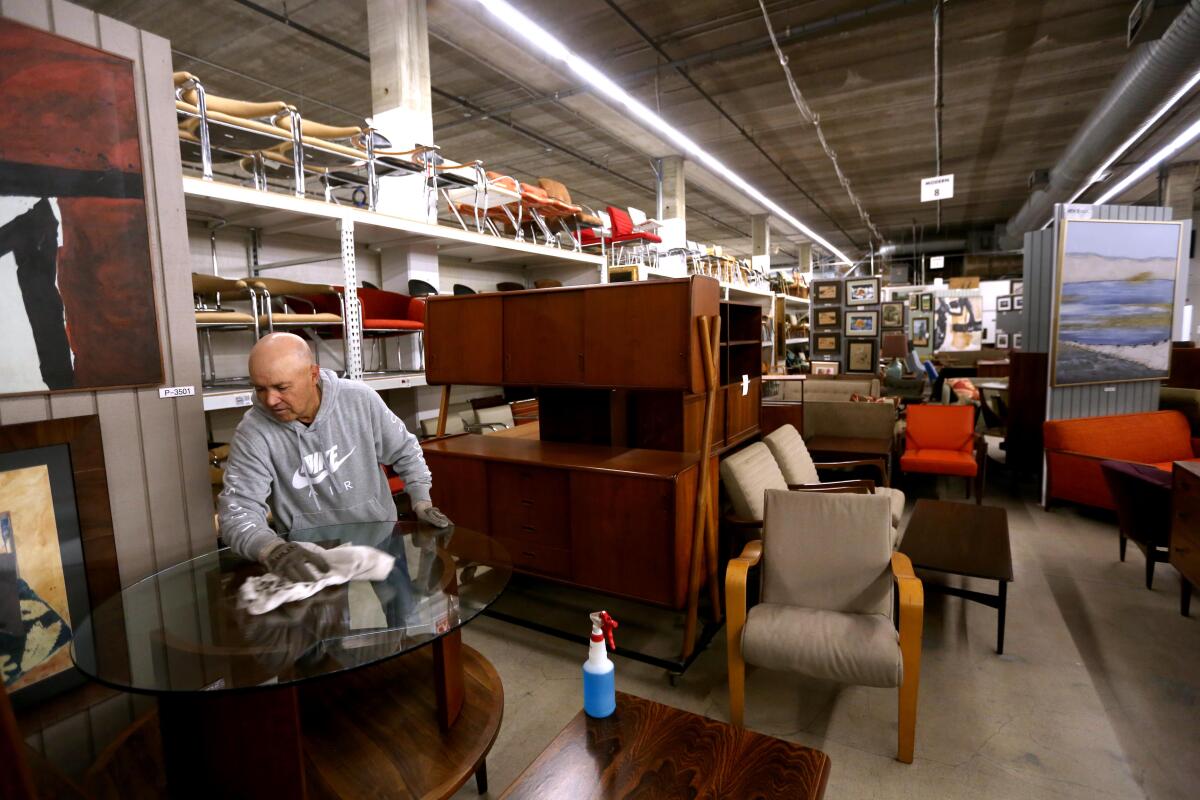
- Share via
Three days after the actors’ strike was declared over, a mile-long section of the 10 Freeway in downtown Los Angeles shut down due to a devastating fire.
The skeleton staff of Omega Cinema Props, which is located right next to that portion of the road, instantly began to fret over how their entertainment-industry clients — who had only just started to trickle back in — would be able to travel to their massive warehouse amid the closure.
Two days later, the power went out in several areas of the building that require electrical tools and machinery to function. The scattered blackouts persisted for nearly the entire work week.
“You just kind of think, are locusts next?” said Beauchamp Fontaine, former set decorator and chief operating officer of Omega Cinema Props.
“How could we have gone through the strike, and now the [freeway] fire and now a power outage? It was a lot. But we’re a resilient business.”
Sony Pictures said it is closing its prop house on Friday, as many of businesses get squeezed because of production shut-downs due to Hollywood strikes.
Omega is among a number of Los Angeles prop houses recovering from the filming standstill caused by the overlapping writers’ and actors’ strikes, which lasted a combined six months. The local vendors that supply productions with the furniture, equipment, decorations and other items they need to dress a film or TV set were among the hardest hit during the work stoppages, just as they were bouncing back from shutdowns caused by the COVID-19 pandemic.
Now, the remaining employees of these beleaguered businesses — those who survived widespread layoffs, furloughs and pay cuts — are busy gearing up for the imminent return of production.
Heritage Props LA, a Burbank-based business that specializes in laboratory and medical equipment, opened in November 2022 with a team of four. During the strikes, president Frank Uchalik was forced to slash his already meager staff in half — leaving only himself and his business partner to run the prop house without compensation.
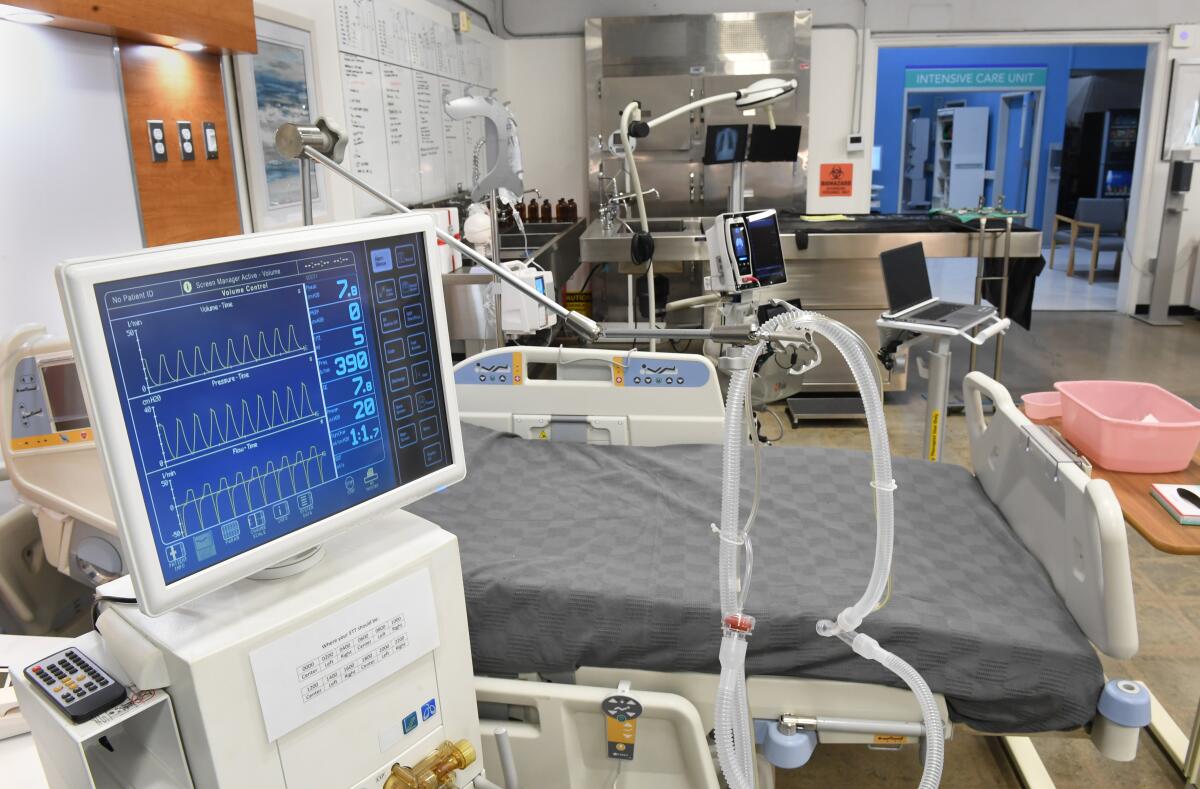
To remain afloat, Uchalik constructed a hospital set — complete with a 32-foot corridor, a waiting room and a nurse’s station — which he rented to nonunion projects, such as student films, and independent productions.
He plans to continue allowing projects to film there for supplemental income as he endeavors to pay off hundreds of thousands of dollars in debt and eventually rehire his former employees in the new year.
The Heritage hospital set is just one example of the many ways in which prop houses got creative during the walkouts in order to keep the lights on.
Beyond loaning furniture, artwork and other items to nonstruck productions such as music videos and commercials, Omega Cinema Props in downtown L.A. made an effort to attract home stagers and manufacture pieces for interior designers.
As productions shut down due to the writers’ strike, local prop houses, florists and caterers worry about their future and loss of work, as their business costs continue to rise.
Meanwhile, ISS Props tapped into the content-creator market, providing fake weights for fitness influencers and rubber weapons for internet pranksters.
The Sunland-based global prop giant — whose props can be seen in such movies as “The Adam Project” on Netflix and the Warner Bros. release “Birds of Prey” — also collaborated with amusement parks to deck the interiors of rides and other attractions with elaborate, themed displays.
“We’re open to doing business with just about everybody,” said Gregg Bilson, president of ISS Props. “We don’t deal with the public, per se. But anybody that’s in [entertainment], we try to work with them the best we can.”
One effect of the twin Hollywood strikes that multiple prop vendors identified as a “silver lining” is suddenly having all kinds of time and energy to devote to ambitious internal projects that will help them run their businesses more efficiently when clientele return.
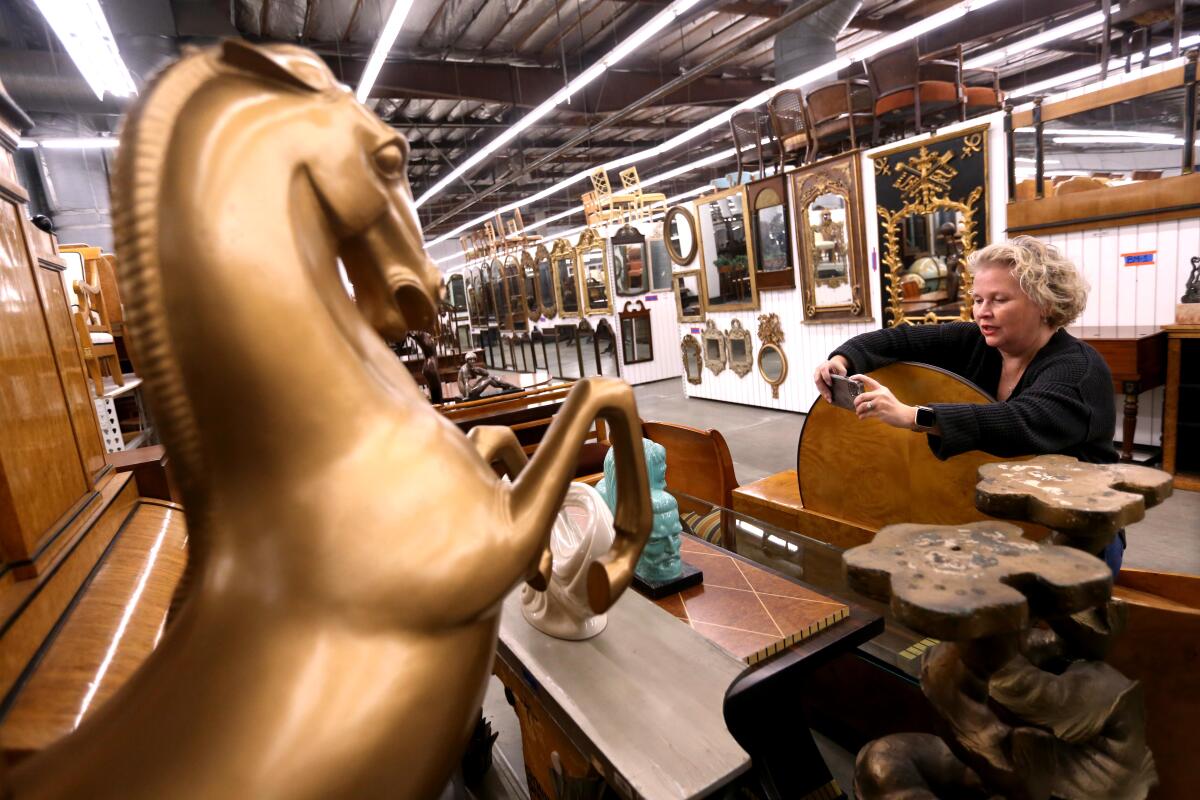
Fontaine has taken it upon herself to reorganize the entire upper level of the Omega warehouse, which used to be a somewhat haphazard collection of items that spilled over from the main showroom.
What was once a messy attic of sorts has since been transformed: Thousands upon thousands of period-specific lounge chairs, couches, coffee tables, vases and other pieces meticulously grouped and labeled by stylistic era, from Hollywood Regency and Art Deco to Midcentury Modern and Chinoiserie.
In some sections, Fontaine has taped up educational blurbs to explain the origins and cultural significance of certain items, such as antique German beer steins and Staffordshire pottery dogs.
“We don’t have time to hunt anymore,” said Fontaine, who has heard that studios have been shortening set decorators’ preparation periods in the wake of the strikes.
“As much as there’s a lot of fun in the hunt [for props], it’s better for sales ... for people to be able to find things easily.”
Modern Props, major maker of film props, shuts doors after 42 years in business.
Another feature that both Omega and ISS have added to their warehouses in anticipation of production ramping back up are extensive selections of “cleared artwork” — such as posters to adorn the walls of a teenage girl’s bedroom, finger paintings to display in an elementary school classroom or holiday cards to stick on a fridge — that set decorators can purchase and use without any legal repercussions.
“We’re not in Hollywood proper. We’re a little bit on the outskirts, so we always wanted to make [ISS] a destination,” said Hayden Bilson, vice president of business development.
“If you’re gonna come out here, you’re not just coming out here for one little thing. You’re gonna get everything you need.”
SAG-AFTRA has approved a deal from the studios to end its historic strike. The actors were on strike for more than 100 days.
Less than a month since the performers union SAG-AFTRA reached a tentative deal with the studios to end the actors’ strike, things are slowly starting to look up for the prop house community.
After laying off 18 employees during the work stoppages — a decision that still brings Fontaine to tears — she lit up at the sight of buyers and set decorators roaming the Omega warehouse this week.
One returning customer, Jill Carvalho, was searching for statement pieces to furnish veteran comedian Deborah Vance’s (Jean Smart) Los Angeles mansion for the upcoming third season of HBO’s “Hacks.” Another, Eva Firshein, was out on assignment for a mysterious Netflix project with the code name “Falcon.”
“I’m really optimistic,” Fontaine said. “We’re going to be here to help our customers through it, and I think that they are going to reciprocate. I think that they’re going to be very supportive and bring us business. ... We are absolutely a phoenix rising from the ashes.”
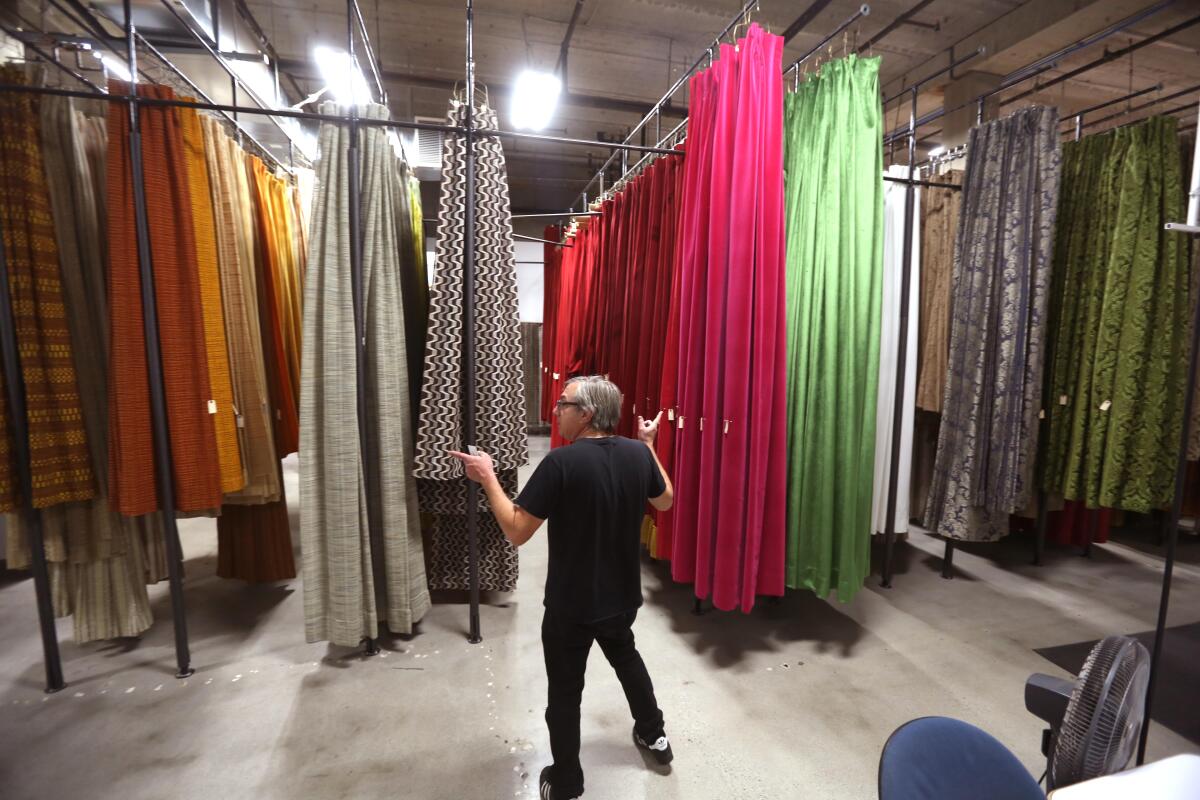
So far, about a dozen movies and TV series — including Sony and Marvel’s “Madame Web,” CBS’ “NCIS,” the CW’s “All American” and ABC’s “Grey’s Anatomy” — have reopened their accounts with Heritage Props. And the hospital set has been booked for 13 days and counting in December by multiple clients, including a healthcare company looking to film nurse training videos.
Earlier this week, the National Football League even took over the space to shoot part of an upcoming documentary series.
But Heritage Props’ Uchalik has been burned too badly to bank on prop and set rentals alone. After operating in the medical TV and film space for three decades, the longtime vendor is considering “getting into the real world” of healthcare too — potentially the hospice industry.
“I love what I do, and I love this business, but it’s pretty volatile right now,” Uchalik said. “I need something outside of this industry, so if something like this happens again, I have a little more security.”
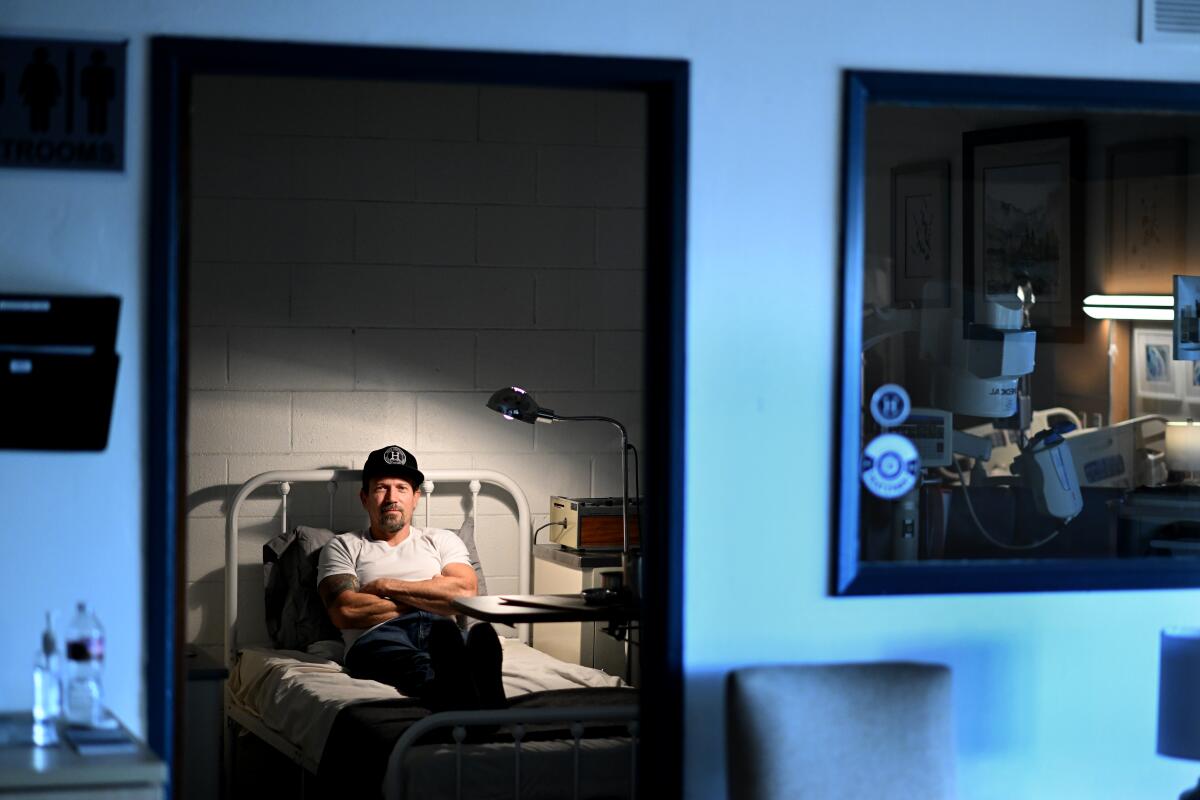
Once business becomes profitable again, Uchalik plans to set up a savings fund “just in case this happens again in three years.” He floated the idea of the local prop houses forming a coalition and creating a disaster relief fund that would benefit their community in the event of another Hollywood labor crisis.
The ISS team has been taking similar precautions, expanding its services beyond film and TV and into Canada, Hungary, the United Kingdom and other countries as a hedge against any slowdowns in the U.S.
Help for local prop houses may be on the way. The L.A. County Film Office and Department of Economic Opportunity is creating a relief fund for entertainment-related businesses affected by the strikes.
The director of the department, Kelly LoBianco, said the county plans to allocate about $2 million to dole out $25,000 grants to individual businesses, ideally in the first quarter of 2024.
“What we’ve seen ... in the last seven months is how crucial these businesses are,” said Gary Smith, head of the L.A. County Film Office. “The prop houses, caterers, florists, etc. — they are the heart and soul of the industry. If they go away, the industry doesn’t work.”
Times staff writer Wendy Lee contributed to this report.
